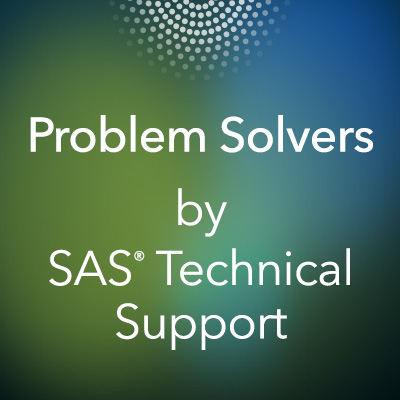SAS training leads to certification success : EpochResearch Institute India Pvt Ltd. (SAS Authorised Training : Ahmedabad | Bangalore)
Suiru Jiang is an MBA candidate who successfully passed her SAS
certification exam. She took my five-day SAS programming fast track
course at Goodman School of Business at Brock University.
I recently sat down with Suiru to ask about her experience to
hopefully provide a perspective to other candidates prepping for the
certification exam.
Question 1: Why did you want to get SAS certified? What do you think are the benefits to certification?
Suiru: SAS is a powerful statistical platform which
can access a variety of data. SAS is derived from the English language
which makes understanding as well as application of this programming
language easy.
Big data is the future trend. Data analysts have bright prospects.
The biggest benefits of getting SAS certified is how it opens doors to
employment. SAS certification demonstrates that you can learn your job
more quickly.
Question 2: What SAS courses did you take? How did SAS
training help you? Could you have learned SAS without structured
training?
I took your five-day long SAS programming course. As the instructor,
you explained logic connections between all the chapters very clearly,
otherwise we would hardly be able to understand why we need to choose a
certain statement or option to reach our analysis goal.
Can we learn SAS by ourselves? This is a question I have been asked
many times by friends. Instead of giving you a vague definition, I’ll
just use myself as a benchmark for you to measure your own situation.
I am a computer science major. I got scholarships every year. I
learned C, assembly language and a bit of Java during my bachelor’s
degree studies. In the beginning, while learning SAS, I found the
similarity of all programming languages because it deals with computers
which is still a machine that just processes your orders.
But my friends who have no programming background had difficulty in
understanding why we need to build a library each time we reopen SAS
software, the logic to access data, or how to create new data in
libraries, etc. All these problems were based on zero knowledge of the
programming environment. But after understanding the computing
environment, they were able to better grasp the main idea and logic of
programming.
When you are learning by yourself, especially at the very beginning,
the most difficult part of programming is not remembering hundreds of
programming statements but to set a foundation for your programming.
Logic is vital and it is the foundation of all the activities you do
over software. The book may not be enough for you to visualize concepts,
although textbooks can illustrate theories to you, can show you
examples and quiz you, but the depth of understanding varies from person
to person. If the programming world is an uncultivated field for you,
you do not have the basic idea and benchmark, how do you know which
level you reached?
So, unless you are super smart, you would be better off to take at
least some level of basic training to ensure you enter the programming
world with the right foot.
Finally, I still took time to go through all the materials in the
book and in notes to ensure I passed the exam. This year in my class,
only three out of 36 passed the SAS certification exam.
Question 3: What did you do after SAS training? Any specific
links that you found helpful that you might like to share to help others
looking to get certified?
Suiru: Because of my busy study program, I only read the textbook and
my class notes to prepare for the exam. I know Charu has a blog
where she shares SAS tips and answers to business problems. I think
I’ll start from her blog and do some data mining to find some shortcuts.
Question 4: What are your next steps?
Suiru: I plan to prepare for the advanced level of SAS programming.
After all, I chose to be a data analyst in the future. The more I learn
today, the better I will get repaid in the future.
Question 5: Tell me something you do outside of your SAS
learning in your MBA program. What suggestions do you have for others to
do in addition to learning SAS? Any advice that may help them expand
their horizon and make them well rounded for an effective job search.
Suiru: The study load to finish an MBA program is heavy, but I still
manage to squeeze time for extra-curricular activities. I am now the
secretary of the International Student Association in Brock University. I
volunteer in various events like the ice wine festival. I am learning
to play guitar. I hosted and performed in the festival celebration
party in my church. I also got a certification for success in Brock
University provided by the international center. Lastly, as you know, I
earned a SAS Certification.
As an international student, if your main goal is to find work and
get yourself integrated into the society, extra-curricular activities
count. Do not make excuses to stop learning. Also, learn some basic
programming that can equip you for the changeable future. Treat your
programming course as an investment that will pay off in the future in
the form of your job.
Epoch Research Insitute Links:
Email us: info@epoch.co.in
SAS Training & Placement
Programs with Internship : Epoch Research Institute India Largest and Oldest
#SASTraining Institute (#epochsastraining)
EPOCH RESEARCH INSTITUTE OFFERS:
Authorized SAS TRAINING | SAS
CERTIFICATION | SOFTWARE PURCHASE | BUINESS CONSULTING | TECHNICAL SUPPORT ON
SAS || SAS STAFFING SOLUTION
Label:
#SASELEARNING,#SASELEARNING,#SASONLINETRAINING,
#SASONLINETRAININGFORBEGINNERS,#LEARNSASPROGRAMMINGONLINE,
#SASCLINICALONLINETRAINING,#SASBASEONLINETRAINING
#BIGDATASASTRAININGEPOCH,#SASBIGDATATRAINING
#EPOCHRESEARCHINSTITUTE, #SASTRAINING, EPOCH SAS FEEDBACK,


No comments:
Post a Comment